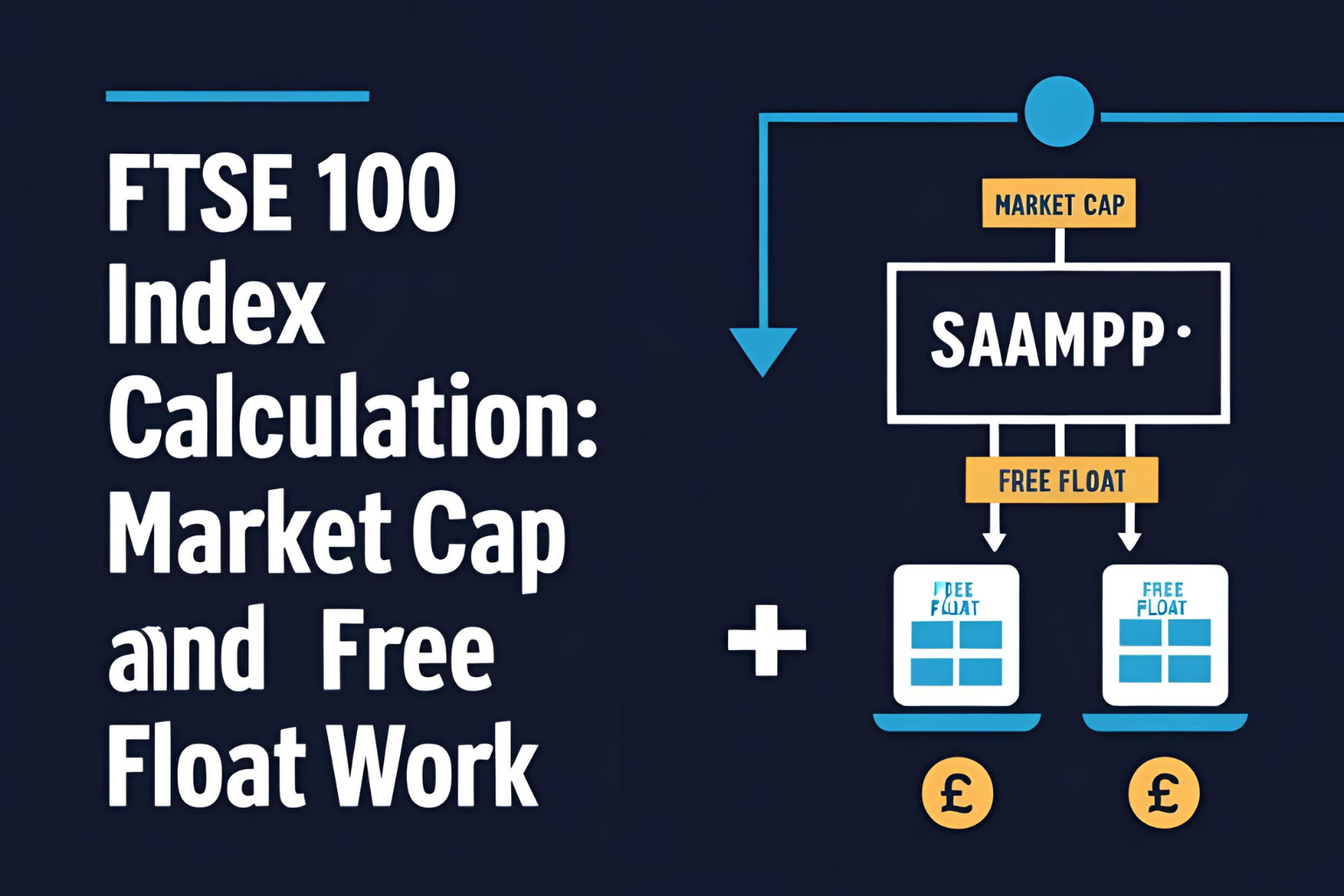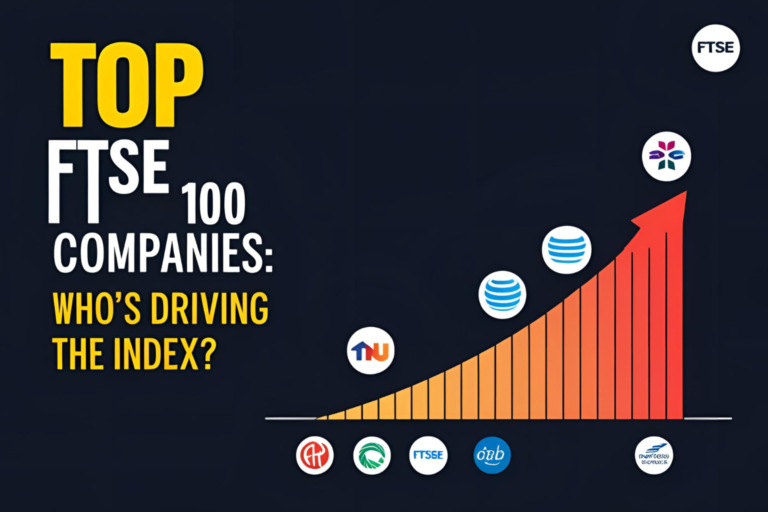FTSE 100 Index Calculation: How Market Cap and Free Float Work
Introduction:
Ever wondered how the FTSE 100 Index value is calculated? It’s not just a simple average of stock prices. Instead, it’s based on market capitalization and something called free float adjustment. This guide will walk you through the FTSE 100 index calculation and explain why certain companies have more impact on the index than others.
What Is Market Capitalization?
Market capitalization (or market cap) is the total value of a company’s shares on the stock market. It’s calculated as:
Market Cap = Share Price × Total Number of Shares
The higher the market cap, the larger the company—and the bigger its weight in the FTSE 100.
What Is Free Float?
Not all shares are available for public trading. Free float represents the percentage of shares that can be bought and sold on the open market.
Shares held by:
- Company insiders
- Governments
- Strategic partners
…are excluded from the calculation.
So, Free Float Market Cap = Market Cap × Free Float Percentage
How the FTSE 100 Index Is Calculated
The FTSE 100 is a free-float market capitalization-weighted index, meaning companies with more freely traded shares and higher value carry more weight.
Formula (Simplified):
FTSE 100 Index = (Σ [Free Float Market Cap of All 100 Companies]) / Divisor
The divisor is a number used to standardize the index and keep it consistent during events like stock splits, rights issues, or changes in company composition.
Why Larger Companies Have More Influence
Since the FTSE 100 is weighted by market cap:
- Companies like Shell or HSBC move the index more than smaller constituents.
- A 2% rise in a top-weighted stock can affect the index more than a 10% move in a low-weighted one.
Quarterly Rebalancing
Every March, June, September, and December, the FTSE Group reviews the index. Companies may be:
- Added if their market cap has risen enough.
- Removed if their market cap has fallen below the required level.
This ensures the FTSE 100 always reflects the top 100 most valuable UK-listed companies.
Conclusion
Understanding how the FTSE 100 Index is calculated gives you deeper insight into what moves the market and why some companies have more influence than others. With market cap and free float at its core, the index is designed to reflect the real-world value of the UK’s top firms.
FAQs
1. What is free float in index calculation?
Free float refers to the shares available for public trading, excluding restricted or insider-held shares.
2. Why does Shell affect the FTSE 100 more than smaller companies?
Shell has a large market cap and high free float, giving it more weight in the index.
3. What is the FTSE 100 divisor?
The divisor is a number used to normalize the index, accounting for corporate actions and keeping it consistent.
4. Is the FTSE 100 equal-weighted?
No, it’s market-cap weighted, meaning larger companies influence the index more.
5. How often is the FTSE 100 recalculated or reviewed?
The index is recalculated in real time during market hours and officially reviewed quarterly.





